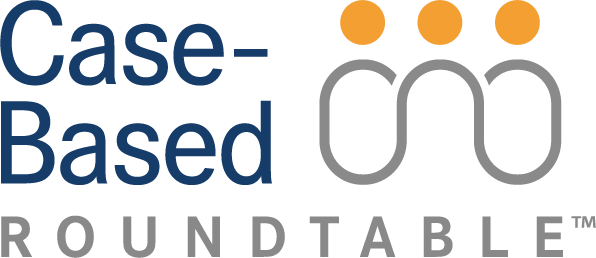
Favorable Toxicity Management with Sacituzumab Govitecan in Advanced Breast Cancer

In the second article of a 2-part series, Aditya Bardia, MD, MPH, discusses the favorable toxicity profile of sacituzumab govitecan for patients with metastatic breast cancer and how he handles neutropenia through the course of treatment.
CASE
- A 62-year-old woman presented with a 6 cm right breast mass, which has been slowly growing for 1 year with palpable axillary nodes
- Liver function tests: Within normal limits
- CT scan showed 2 liver nodules; the largest is 2 cm.
- Bone scan: extensive disease in thoracic spine, ribs.
- Breast biopsy: grade 2 invasive ductal carcinoma; estrogen receptor positive, progesterone receptor positive, HER2 immunohistochemistry (IHC) was 0, BRCA1/2 negative.
- Liver biopsy confirms metastatic disease with similar markers.
- Stage T3N1M1
- ECOG performance status: 0
- Treatment with letrozole plus ribociclib (Kisqali) was initiated.
- Bisphosphonate was given to address bone metastasis.
- Circulating tumor DNA was collected and sent for genomic testing. It did not show PIK3CA, ESR1, or other actionable mutations.
- Patient progressed after endocrine and CDK4/6 inhibitor therapy. She received fulvestrant plus everolimus for progressive disease.
- Initial follow-up imaging post-treatment showed stable disease. Six months post-treatment, imaging showed liver and lung nodules enlarged from initial post-treatment scan.
- The patient was treated with capecitabine until progression of disease.
Targeted Oncology: Based on the TROPiCS-02 trial (NCT03901339), how does a patient’s HER2 immunohistochemistry status impact results with sacituzumab govitecan (Trodelvy)?
ADITYA BARDIA, MD, MPH: In terms of HER2 [expression]…the drug targets Trop-2, so we would expect that the HER2 results would not matter and that's what was seen [on this trial].1 For patients with a HER2 low tumor or an IHC HER 2 score of 0, the [efficacy] benefit was maintained with sacituzumab govitecan. Overall, in terms of the response rate, it was higher with sacituzumab govitecan compared with standard therapy, [at 21% vs 14%, respectively (HR 1.66; 95% CI, 1.06-2.61), P = .027)].1
What was the toxicity profile seen with this therapy?
The drug has SN-38, so the adverse event [AE] profile would be similar to what you would see with irinotecan [with] myelosuppression, nausea, diarrhea, and alopecia.1 It's the incidence of certain AEs [with sacituzumab govitecan] that are lower compared with irinotecan. [For example], grade 3 diarrhea with irinotecan is about 30%, but with [sacituzumab govitecan] it's 10%.
The advantage of the antibody-drug conjugate [ADC] is that you get more delivery of the payload to tumor cells, so there is a better efficacy and conceptually lower toxicity. [However,] it still does have myelosuppression events, and patients sometimes need granulocyte colony-stimulating [G-CSF] as secondary prophylaxis.1 For nausea, I usually use a 3-drug antiemetic regimen to start with, and then [to help them deal with] diarrhea I usually give patients a prescription of imodium.
What infusion-related reactions, if any, occur with this drug?
Allergic reactions, or infusion related reactions, to sacituzumab govitecan have been described, but they're not very common.1 It's like with any other antibody, where any-grade anaphylactic reactions are quite rare.2 I personally have had a couple of patients with anaphylactic reactions to sacituzumab govitecan, but it's certainly not very common, yet something that can be seen [in patients].
What role does G-CSF play in treating patients who develop neutropenia with this therapy?
In general, I don't use primary prophylaxis with G-CSF, but I do consider secondary prophylaxis with G-CSF if a patient is having a prolonged neutropenia. Rarely, I would consider primary prophylaxis with G-CSF in a patient who is elderly that you're worried that if has neutropenic fever that could be very serious, or the baseline counts are low, but in general, it's more a secondary prophylaxis. Then, it depends whether you want to use short-acting or long-acting G-CSF depending on what you're trying to address [for the patient]. If you want to correct the day 8 neutropenia with sacituzumab govitecan, then use short-acting G-CSF a few days before that, so around day 4 or 5. If you're trying to address it on day 1 of cycle 2 or cycle 3, then with the previous cycle you can use a long-acting G-CSF on day 8, because that will help the next cycle.
References
1. Tolaney S, Bardia A, Marme F, et al. Final overall survival (OS) analysis from the phase 3 TROPiCS-02 study of sacituzumab govitecan (SG) in patients (pts) with hormone receptor–positive/HER2-negative (HR+/HER2–) metastatic breast cancer (mBC). J Clin Oncol. 2023;41(16):1003-1003. doi:10.1200/JCO.2023.41.16_suppl.1003
2. D'Arienzo A, Verrazzo A, Pagliuca M, et al. Toxicity profile of antibody-drug conjugates in breast cancer: practical considerations. EClinicalMedicine. 2023;62:102113. doi:10.1016/j.eclinm.2023.102113








































